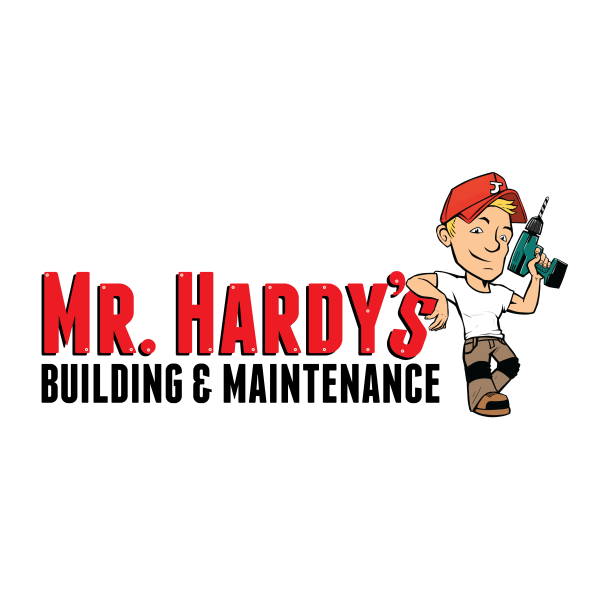Garage Conversions in Ealing
Cosy Homes Property Maintenance LTD, based in Tolworth, is your premier choice for builders, property refurbishment, lof... read more »
Welcome to The Likeable Craftsmen, your go-to experts for all things home improvement in Potters Bar and across Hertfordshire,... read more »
Eric Lala Construction Ltd is a premier construction company based in Addiscombe, renowned for its exceptional services... read more »
Welcome to Building Solution Art Limited, your premier choice for top-notch building services in Bloomsbury and the wider Camden area of... read more »
Able Refurbishments Ltd: Premier Tradespeople in Ewell and Surrey
Welcome to Able Refurbishments Ltd, the leadin... read more »
Sallaku Building Services is a premier choice for all your construction and renovation needs in Brentford End, proudly s... read more »
Earthmates Construction Limited is a premier construction company based in Uxbridge, offering a wide range of services i... read more »
Welcome to Haze Construction Limited, your go-to experts for all building needs in Central London and the City of London. With a rich his... read more »
G R Maintenance Ltd is a premier property maintenance company based in the vibrant area of Bermondsey, offering a compre... read more »
Alex Interiors Ltd: Your Premier Choice for Building Services in Edgware and Barnet, London
Welcome to Alex Inte... read more »
SH Eagle Construction Ltd is a distinguished construction company nestled in the bustling area of West Acton, offering a... read more »
Welcome to REY Property Solutions LTD, your trusted partner in construction and renovation services in Waterdale, Hertfordshire. As a lea... read more »
Welcome to Indrit Construction, your premier choice for all building and renovation needs in New Barnet and the surrounding areas of Barn... read more »
Welcome to CM Building Ltd, your premier choice for extension builders, loft conversions, renovations, property refurbishment, garage con... read more »
MF General Builders Ltd is a reputable and reliable business based in the heart of Colliers Wood, offer... read more »
Welcome to Barbosa Ferreira Construction LTD, your go-to experts for all construction and renovation needs in Bushey Mead and the wider M... read more »
Welcome to Mr Hardy's Building & Maintenance LTD, your trusted partner for all building and renovation needs in South Oxhey and across He... read more »
Welcome to JC Building & Decorating, your go-to experts for all building and decorating needs in Stanwell Moor and throughout Surrey. As... read more »
Welcome to ABKCONSTRUCTION, your go-to experts for all building and renovation needs in Lewisham, London. As a leading provider of servic... read more »
Jim Building & Property Services Ltd stands as a beacon of excellence in the construction and renovation industry, right... read more »
Search Garage Conversions in places nearby
Introduction to Garage Conversions in Ealing
Garage conversions in Ealing have become increasingly popular as homeowners seek to maximise their living space without the hassle of moving. Whether you're looking to create a new bedroom, a home office, or a playroom, converting your garage can be a cost-effective and practical solution. Ealing, with its charming neighbourhoods and vibrant community, offers a perfect backdrop for such transformations. In this article, we'll explore the ins and outs of garage conversions, providing you with all the information you need to embark on this exciting journey.
Why Consider a Garage Conversion?
Garage conversions offer a myriad of benefits, making them an attractive option for many homeowners. Firstly, they can significantly increase the value of your property. By transforming an underutilised space into a functional room, you can enhance your home's appeal to potential buyers. Additionally, garage conversions are often more affordable than building an extension, as the basic structure is already in place.
Moreover, converting your garage can provide much-needed extra space for growing families or those who work from home. It allows you to tailor the space to your specific needs, whether it's a cosy guest room or a state-of-the-art home gym. With the rising trend of remote working, having a dedicated office space can greatly improve productivity and work-life balance.
Understanding the Planning Permissions
Before diving into a garage conversion project, it's crucial to understand the planning permissions required in Ealing. Generally, converting a garage into a habitable room falls under permitted development rights, meaning you may not need full planning permission. However, there are exceptions, especially if your property is listed or located in a conservation area.
It's advisable to consult with the Ealing Council or a professional architect to ensure compliance with local regulations. They can guide you through the process, helping you avoid potential pitfalls. Remember, adhering to building regulations is essential to ensure the safety and legality of your conversion.
Designing Your New Space
Designing your new space is one of the most exciting aspects of a garage conversion. Start by considering the purpose of the room and how it will fit into your lifestyle. If you're creating a bedroom, think about the layout, lighting, and storage solutions. For a home office, focus on ergonomic furniture and ample natural light.
Incorporating energy-efficient features can also enhance the comfort and sustainability of your new space. Consider installing insulation, double-glazed windows, and energy-saving lighting. These elements not only reduce your carbon footprint but also lower utility bills in the long run.
Choosing the Right Materials
The choice of materials plays a crucial role in the success of your garage conversion. Opt for high-quality, durable materials that complement the existing structure of your home. For flooring, consider options like laminate, hardwood, or carpet, depending on the room's function.
When it comes to walls and ceilings, plasterboard is a popular choice due to its versatility and ease of installation. Ensure that all materials used meet the necessary building standards and are suitable for the intended use of the space.
Hiring Professionals for the Job
While some homeowners may be tempted to tackle a garage conversion as a DIY project, hiring professionals can save time and ensure a high-quality finish. Experienced builders and architects can provide valuable insights and expertise, helping you avoid costly mistakes.
When selecting a contractor, look for those with a proven track record in garage conversions. Check references, read reviews, and request detailed quotes to make an informed decision. A reputable professional will guide you through the process, from initial design to final touches.
Cost Considerations
The cost of a garage conversion in Ealing can vary depending on several factors, including the size of the space, the complexity of the design, and the materials used. On average, you can expect to spend between £10,000 and £20,000 for a standard conversion.
It's essential to set a realistic budget and account for any unexpected expenses that may arise during the project. Obtaining multiple quotes from different contractors can help you gauge the market rate and ensure you're getting the best value for your money.
Maximising Space and Functionality
One of the key objectives of a garage conversion is to maximise space and functionality. Clever design solutions can help you make the most of every square foot. Consider built-in storage options, such as shelves and cupboards, to keep the room organised and clutter-free.
Multi-functional furniture, like sofa beds or foldable desks, can also enhance the versatility of the space. By thinking creatively and planning meticulously, you can create a room that serves multiple purposes without compromising on style or comfort.
Ensuring Proper Insulation and Ventilation
Proper insulation and ventilation are vital components of a successful garage conversion. Insulation helps maintain a comfortable temperature year-round, while ventilation prevents dampness and improves air quality.
Consider using high-quality insulation materials for walls, floors, and ceilings. Installing windows or skylights can enhance natural ventilation and provide ample daylight. Additionally, incorporating mechanical ventilation systems can further improve air circulation and reduce humidity levels.
Addressing Potential Challenges
Like any home improvement project, garage conversions can present certain challenges. One common issue is the integration of plumbing and electrical systems. If you're adding a bathroom or kitchen, ensure that the necessary infrastructure is in place.
Another potential challenge is dealing with uneven floors or low ceilings. These issues can often be resolved with creative design solutions, such as raising the floor or installing recessed lighting. Working with experienced professionals can help you navigate these challenges effectively.
Legal and Safety Considerations
Ensuring the legality and safety of your garage conversion is paramount. Adhering to building regulations and obtaining the necessary approvals is essential to avoid legal complications. These regulations cover aspects such as fire safety, structural integrity, and energy efficiency.
Hiring a qualified surveyor or architect can help you navigate the legal landscape and ensure compliance with all relevant standards. They can also conduct regular inspections throughout the project to ensure that all work meets the required safety standards.
Incorporating Sustainable Features
Incorporating sustainable features into your garage conversion can enhance its environmental impact and reduce long-term costs. Consider using eco-friendly materials, such as reclaimed wood or recycled metal, to minimise your carbon footprint.
Installing energy-efficient appliances and fixtures, like LED lighting and low-flow taps, can further reduce energy consumption. Additionally, consider integrating renewable energy sources, such as solar panels, to power your new space sustainably.
Enhancing Curb Appeal
A well-executed garage conversion can significantly enhance the curb appeal of your home. Pay attention to the exterior design, ensuring it complements the existing architecture and blends seamlessly with the neighbourhood.
Consider adding landscaping elements, such as flower beds or a new driveway, to enhance the overall aesthetic. A fresh coat of paint or new cladding can also give your home a modern and inviting look.
Frequently Asked Questions
- Do I need planning permission for a garage conversion in Ealing? Generally, you may not need planning permission, but it's best to check with the local council.
- How long does a garage conversion take? On average, a garage conversion can take between 4 to 6 weeks, depending on the complexity of the project.
- Can I convert a detached garage? Yes, detached garages can also be converted, but they may require additional considerations for utilities and access.
- Will a garage conversion add value to my home? Yes, a well-executed garage conversion can increase your property's value and appeal to potential buyers.
- What are the common uses for a converted garage? Common uses include additional bedrooms, home offices, gyms, or playrooms.
- How can I ensure my garage conversion is energy-efficient? Use high-quality insulation, energy-efficient windows, and sustainable materials to enhance energy efficiency.
Final Thoughts on Garage Conversions in Ealing
Garage conversions in Ealing offer a fantastic opportunity to enhance your living space and add value to your home. By carefully planning and executing your project, you can create a functional and stylish room that meets your needs and complements your lifestyle. Whether you're looking to accommodate a growing family or create a dedicated workspace, a garage conversion can provide the perfect solution. With the right approach and professional guidance, your dream space is within reach.
Send a message

























